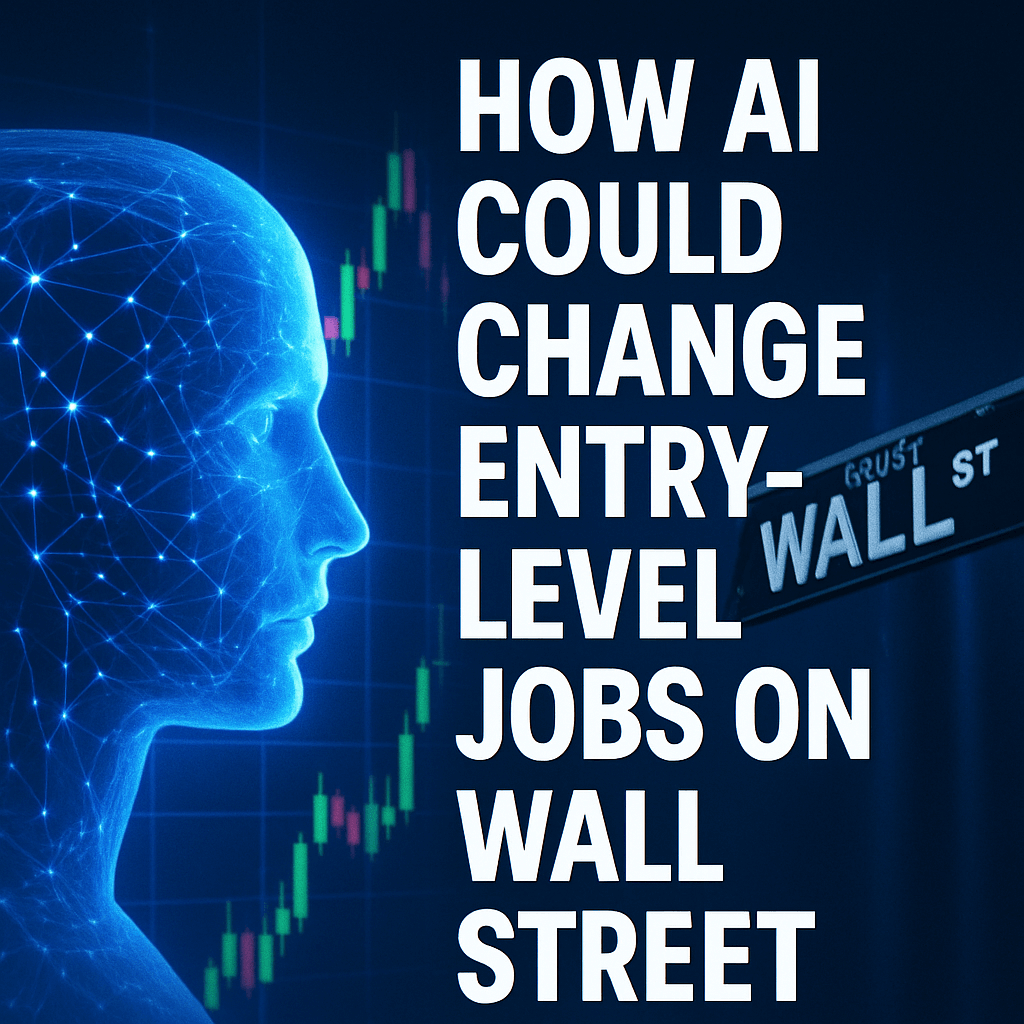How AI Could Change Entry-Level Jobs on Wall Street

As we advance deeper into the era of digital transformation, the incorporation of artificial intelligence (AI) into various sectors has become an undeniable trend. Initially hailed for its potential to streamline processes across numerous industries, AI is now casting shadows over even the most prestigious job categories. Among those at risk are the entry-level analyst positions within Wall Street firms, a fact highlighted in a recent New York Times report.
The Erosion of Traditional Roles
AI adoption has primarily focused on automating routine tasks previously handled by entry-level employees. These jobs have historically been seen as stepping stones to prominent careers within finance, but with the growing capabilities of AI platforms, firms are rationalizing their staffing needs.
According to insights from the New York Times, major firms such as Goldman Sachs and Morgan Stanley are contemplating drastic cuts in entry-level hiring, with reductions of hiring expected to reach as high as 66%. This trend reflects a broader shift within the financial sector, marked by a reliance on AI to perform tasks that require substantial data analysis and processing.
The Nature of Junior Analyst Positions
Historically, junior analysts have faced demanding schedules, often working between 80 to 100 hours per week. Their roles typically involve a blend of data research, market analysis, and preparation of presentation materials. However, a significant portion of this work is repetitive and can be easily automated, such as updating financial models, generating reports, and conducting basic market research.
Jeanne Branthover, head of global financial services at DHR Global, has candidly compared the experience of junior analysts to pledging in a fraternity—emphasizing the traditional culture of hard work and proving oneself in order to ascend within the firm. Nevertheless, with AI tools entering the landscape, junior employees express dissatisfaction as they continue to undertake menial tasks that could potentially be handled by algorithms.
A Changing Landscape: AI’s Influence on Skills and Competitiveness
The integration of AI is leading to claims from industry experts that entry-level positions will become increasingly competitive. Aneesh Raman, LinkedIn’s Chief Economic Opportunity Officer, underscores that AI is fundamentally altering roles in sectors like finance, not just diminishing entry-level jobs, but reshaping them to require a different skill set. In his opinion, the erosion of traditional roles can be expected to continue, necessitating a strategic pivot for aspiring Wall Street analysts.
“While some jobs may be automated, the analytical rigor and decision-making abilities humans provide will remain invaluable,” Raman stated.
The Evolution of Job Functions
With predictions that entry-level jobs may evolve rather than disappear, analysts are encouraged to shift their focus from data collection to more strategic roles. Michael Ashley Schulman, a partner at Running Point Capital Advisors, notes that while the number of analysts required may decrease, their roles will adapt to become more quality-focused—transforming them from data gatherers to data validators. This suggests that future analysts will need to possess stronger analytical, statistical, and technological skills.
Education and the Future Workforce
- The evolving landscape demands that upcoming graduates study AI technologies and data analysis methodologies.
- Students are encouraged to expand their skills to include programming and statistical evaluation techniques.
- Expert Tim Bates posits that entrants into the finance workforce must incorporate AI fluency into their professional toolkit.
In light of these developments, graduates must also consider seeking roles within the fintech sector, where innovative applications of AI are surging. This burgeoning sector presents ample opportunities where both creativity and technical skills are vital, showcasing an emerging career path that may be less susceptible to AI displacement.
Short-Term vs. Long-Term Effects of AI in Finance
While some experts predict a significant transformation in job roles due to AI’s capabilities, others, such as career coach Michelle Enjoli, hold a more cautious perspective. Enjoli asserts that AI is likely to remain a supportive tool for employees as businesses assess the practical implications of fully replacing human positions with AI technology. She emphasizes the continued need for human judgment and oversight, particularly in high-stakes financial decisions.
Conclusion: The infiltration of AI in financial sectors suggests a pivotal shift in the hiring landscape and job descriptions for junior analysts. While AI will introduce efficiency and automation into mundane tasks, the evolving nature of entry-level roles will require future financial professionals to adapt and possess a mixture of analytical and technological prowess.
Source: fortune